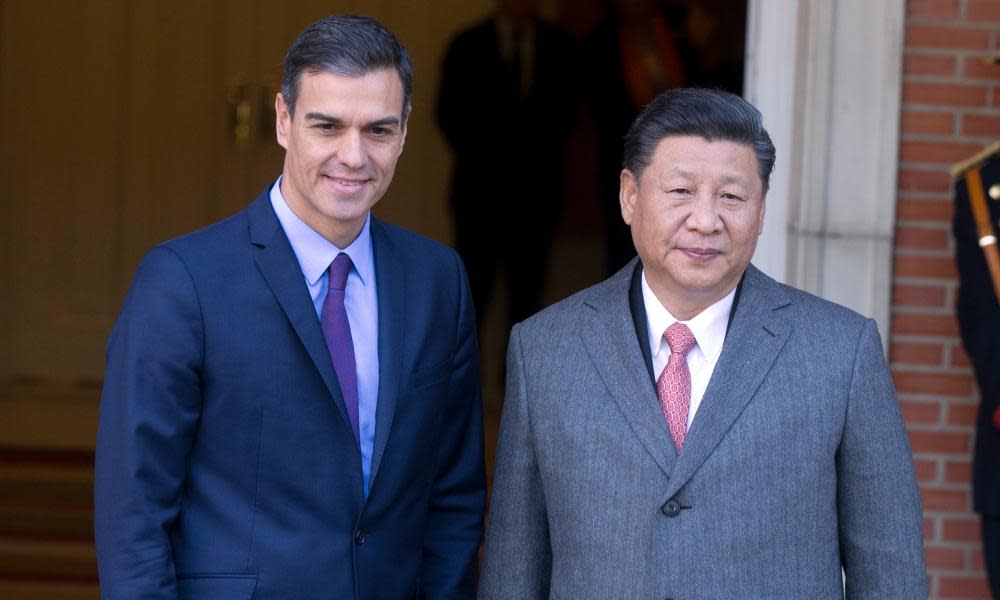Spanish PM to discuss Ukraine with Xi Jinping on visit to China

Spain’s prime minister, Pedro Sánchez, will visit China next week to meet President Xi Jinping, where he is expected to stress that it will be up to Ukraine to decide on the foundations of any peace agreement with Russia.
News of Sánchez’s visit emerged on Wednesday evening, as Xi – who is trying to position himself as a mediator in the war between Russia and Ukraine – wrapped up a symbolic, two-day trip to Moscow.
Speaking to reporters in Brussels on Thursday as he attended an EU summit, Sánchez described China as a “top-tier global actor” and thanked Xi for the invitation to celebrate the 50th anniversary of Spain and China’s diplomatic relations.
But he said their meeting would also “obviously” include discussions about the “global crisis” caused by Russia’s invasion of Ukraine.
“I think it’s important to know first-hand what his position is on peace in Ukraine, and to tell him that it is the Ukrainians themselves who will lay down the conditions for the beginning of this peace, when it arrives,” he said.
“Second, the most important – the most fundamental – thing is to preserve an international rule-based order, which depends on respecting the UN charter. One of those fundamental principles is respecting territorial integrity – in this case the territorial integrity of Ukraine, which is being violated by President Putin.”
Sánchez also noted the importance of Spain being recognised as a possible diplomatic interlocutor during what he termed “such a complicated moment in geopolitical difficulties”.
Spain takes over the EU’s rotating presidency in July, and Sánchez has been keen to portray his nation as an important player on the world stage and a staunch Nato ally of Ukraine.
The prime minister’s office said he would hold commercial meetings during the Boao Forum for Asia on the Chinese island of Hainan on 30 March before travelling to Beijing to meet Xi the next day.
“China and Spain enjoy a sustained, sound and stable development of relations,” a Chinese foreign ministry spokesperson said on Thursday. “The two leaders maintain good communication,” they added, without providing further details.
In the official joint statement from the meeting of Putin and Xi on 21 March, the leaders said: “The Russian side welcomes China’s willingness to play a positive role for the political and diplomatic settlement of the Ukraine crisis and welcomes the constructive proposals set forth in China’s position on the political settlement of the Ukraine crisis.”
On 24 February, exactly one year after Russia launched its invasion of Ukraine, Xi published a 12-point position paper aimed, it claimed, at offering a way forward for the crisis in Ukraine.
The paper said the international community should “create conditions and platforms” for negotiations to resume, and said China would continue to “play a constructive role in this regard”.
It did not offer specific steps but included strong language opposing the “threat or use” of nuclear weapons.
The plan, however, received a cool reception from western leaders who argued that Beijing did not have the international credibility to act as a mediator in the conflict.
Jens Stoltenberg, Nato’s secretary general, said that China had failed to condemn the illegal invasion of Ukraine, while Ursula von der Leyen, the president of the European Commission, said China had already “taken sides” in the conflict.
The Associated Press contributed to this report

 Yahoo News
Yahoo News 
